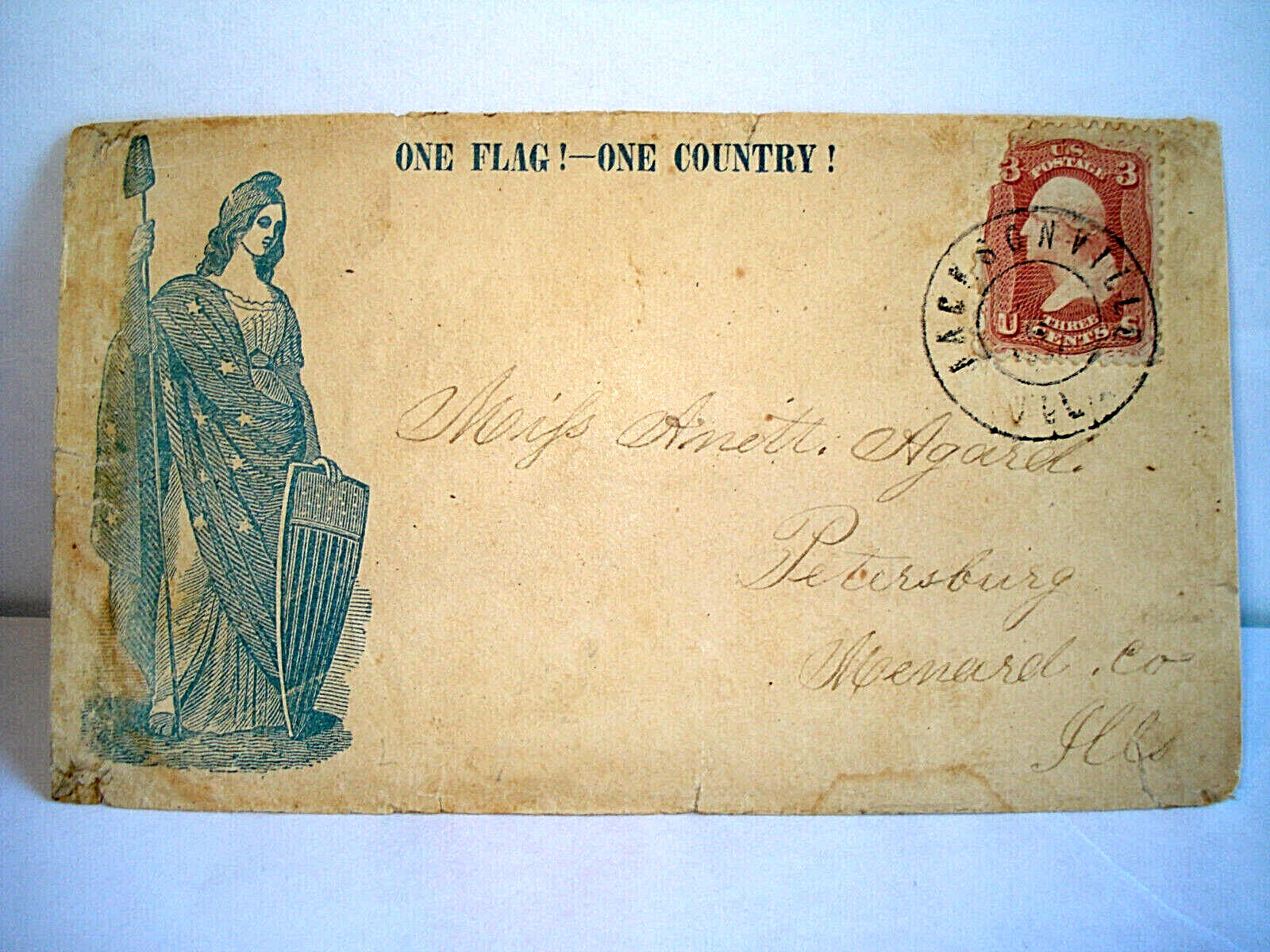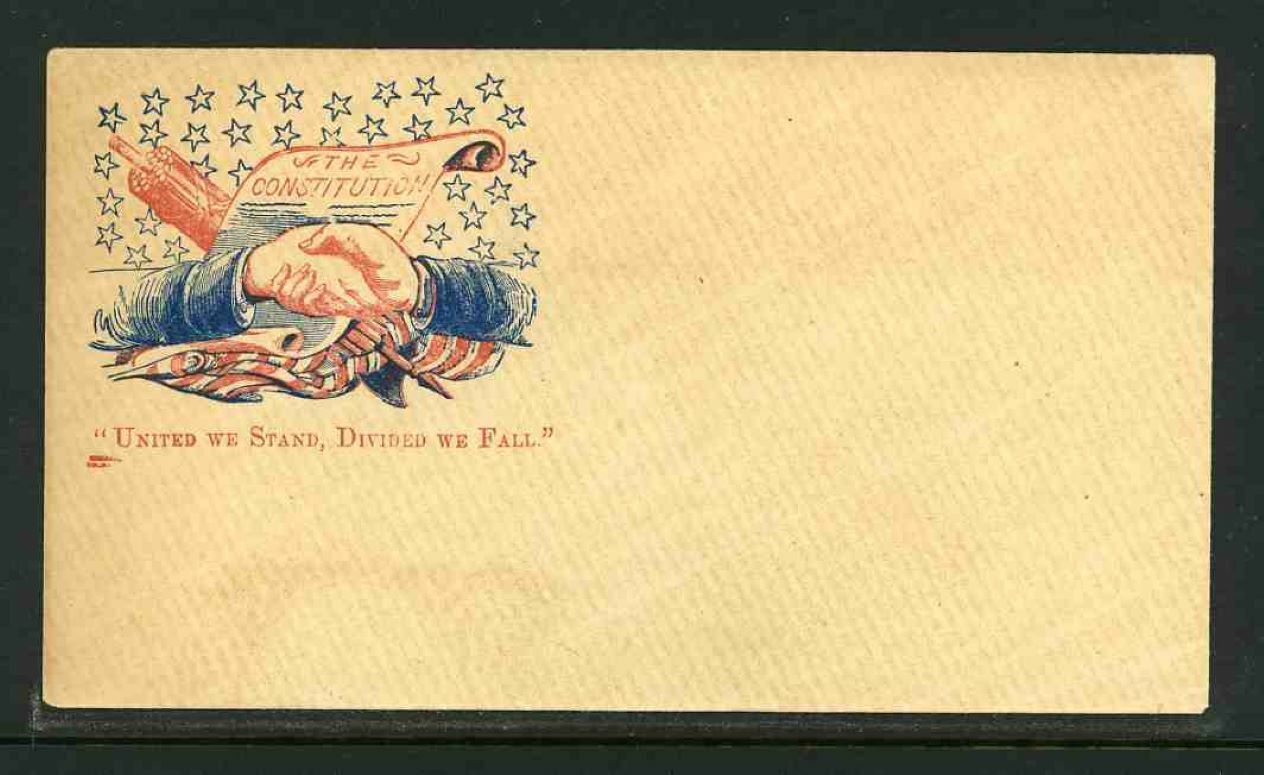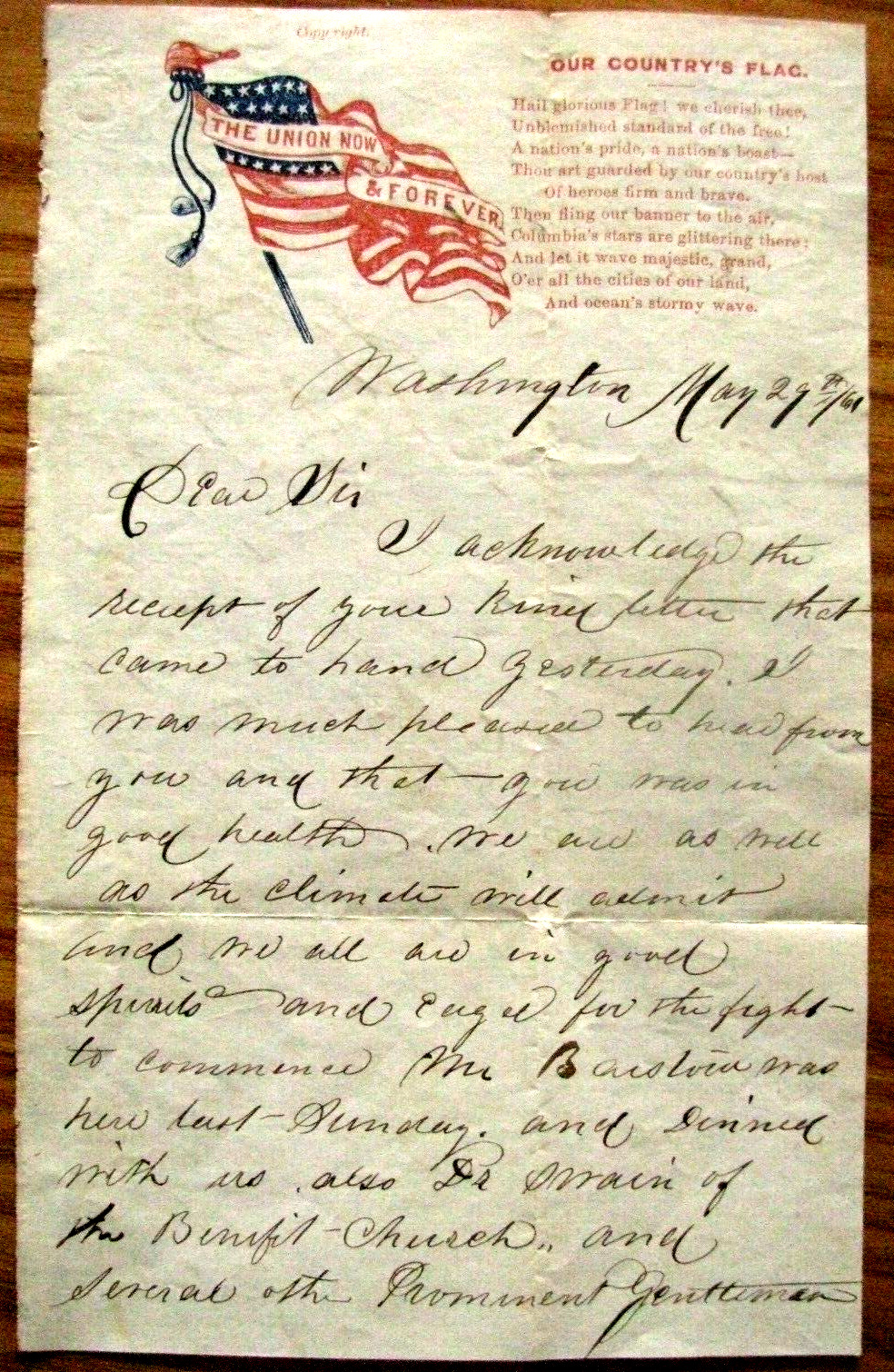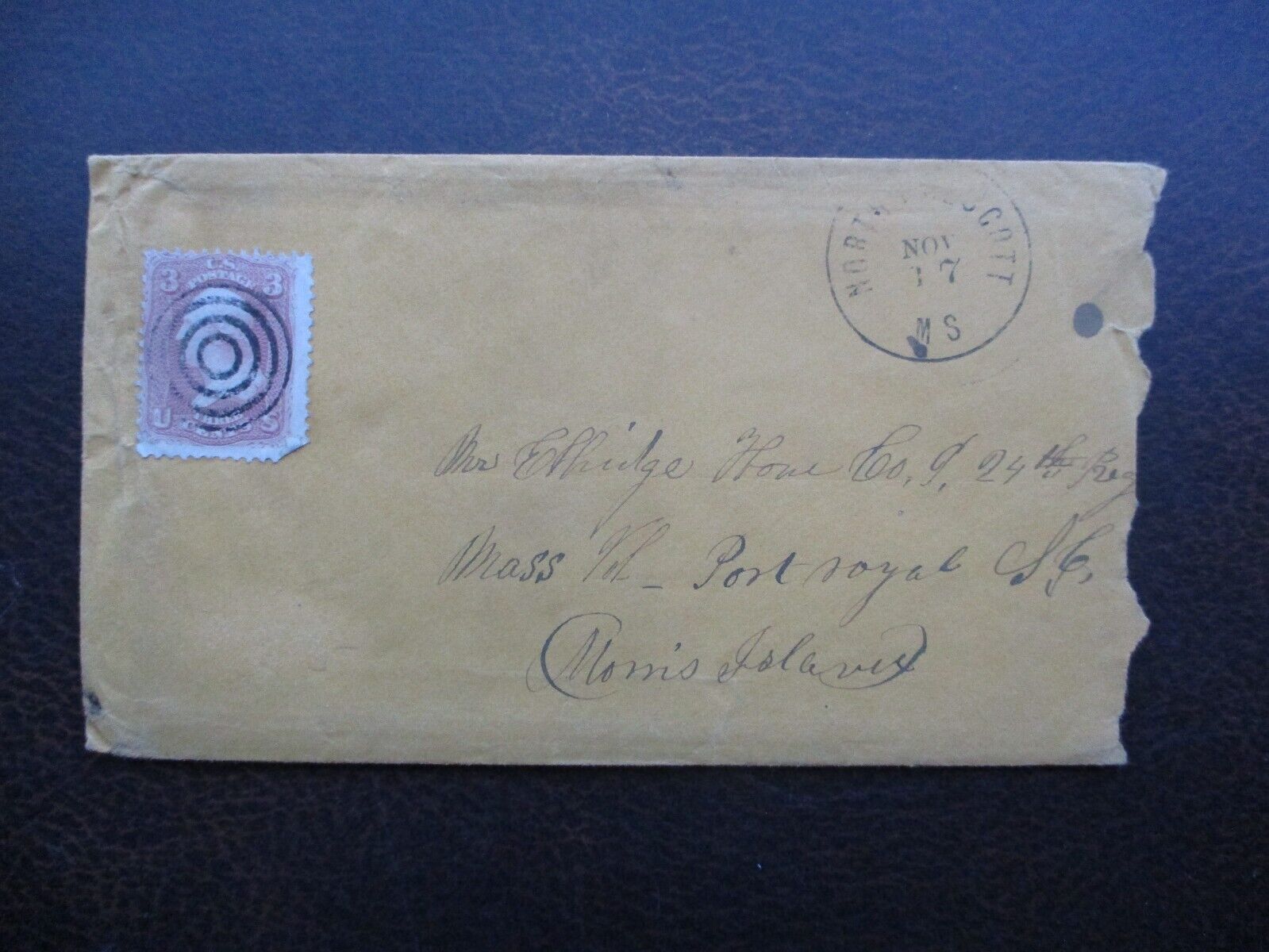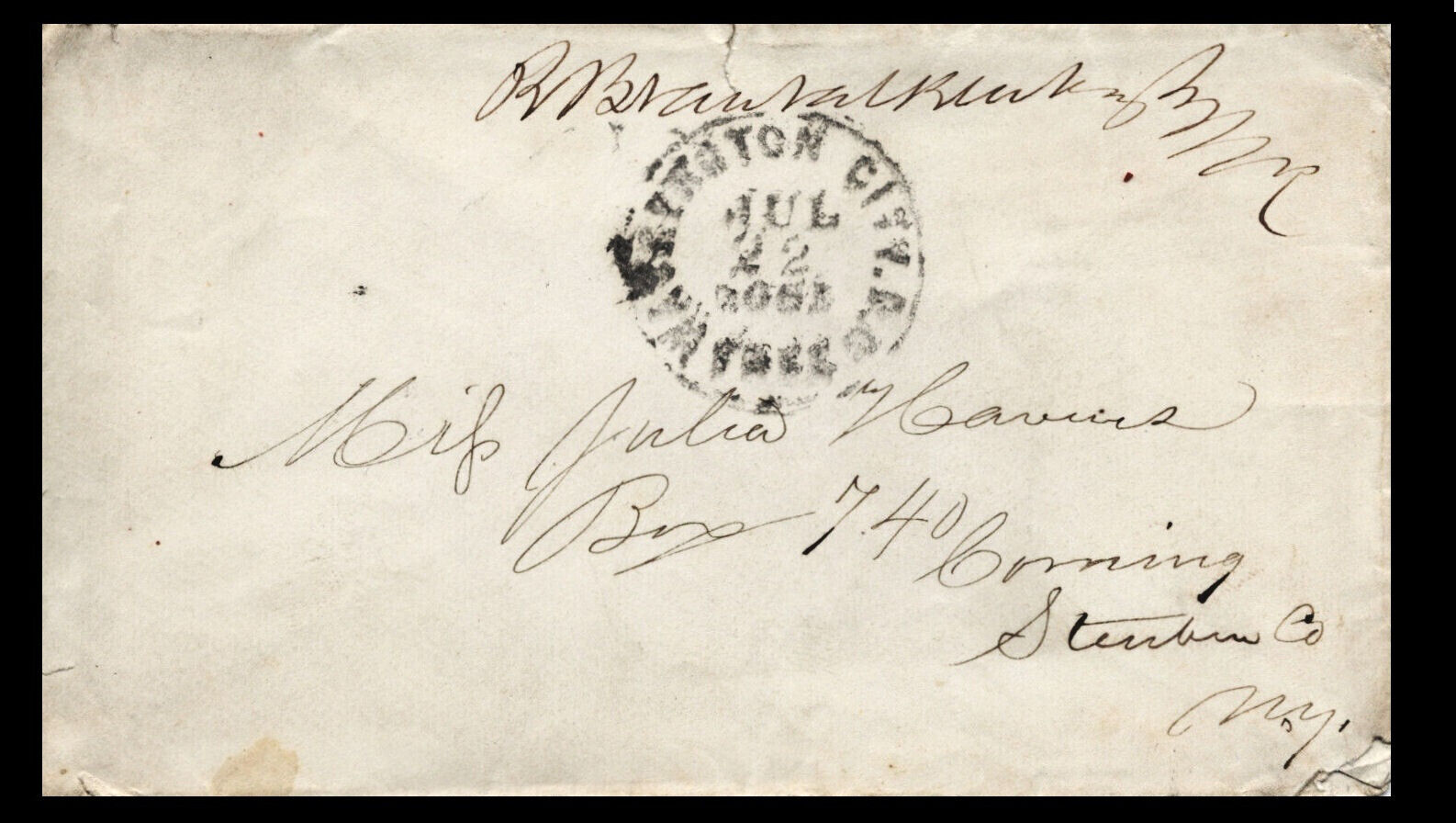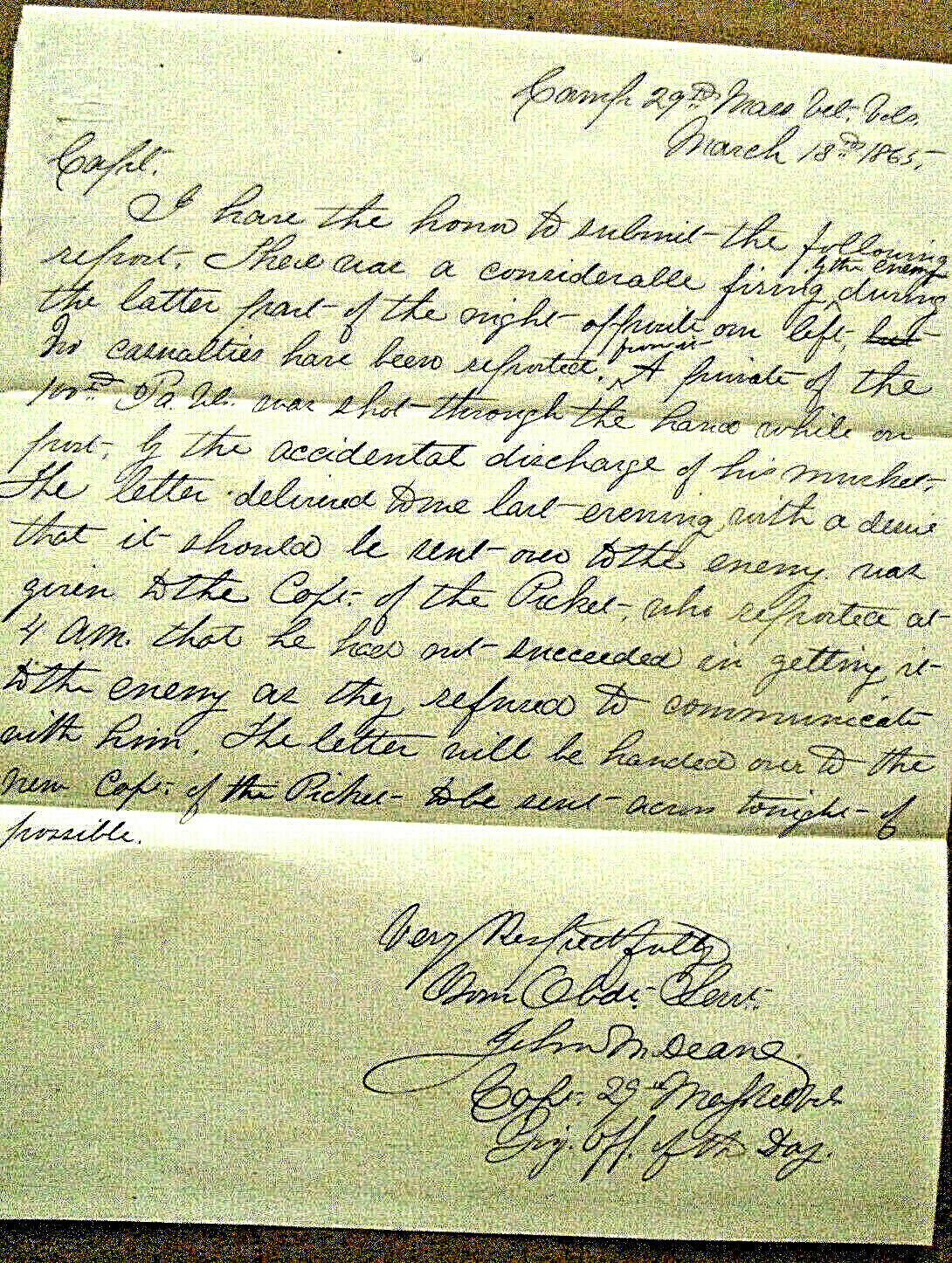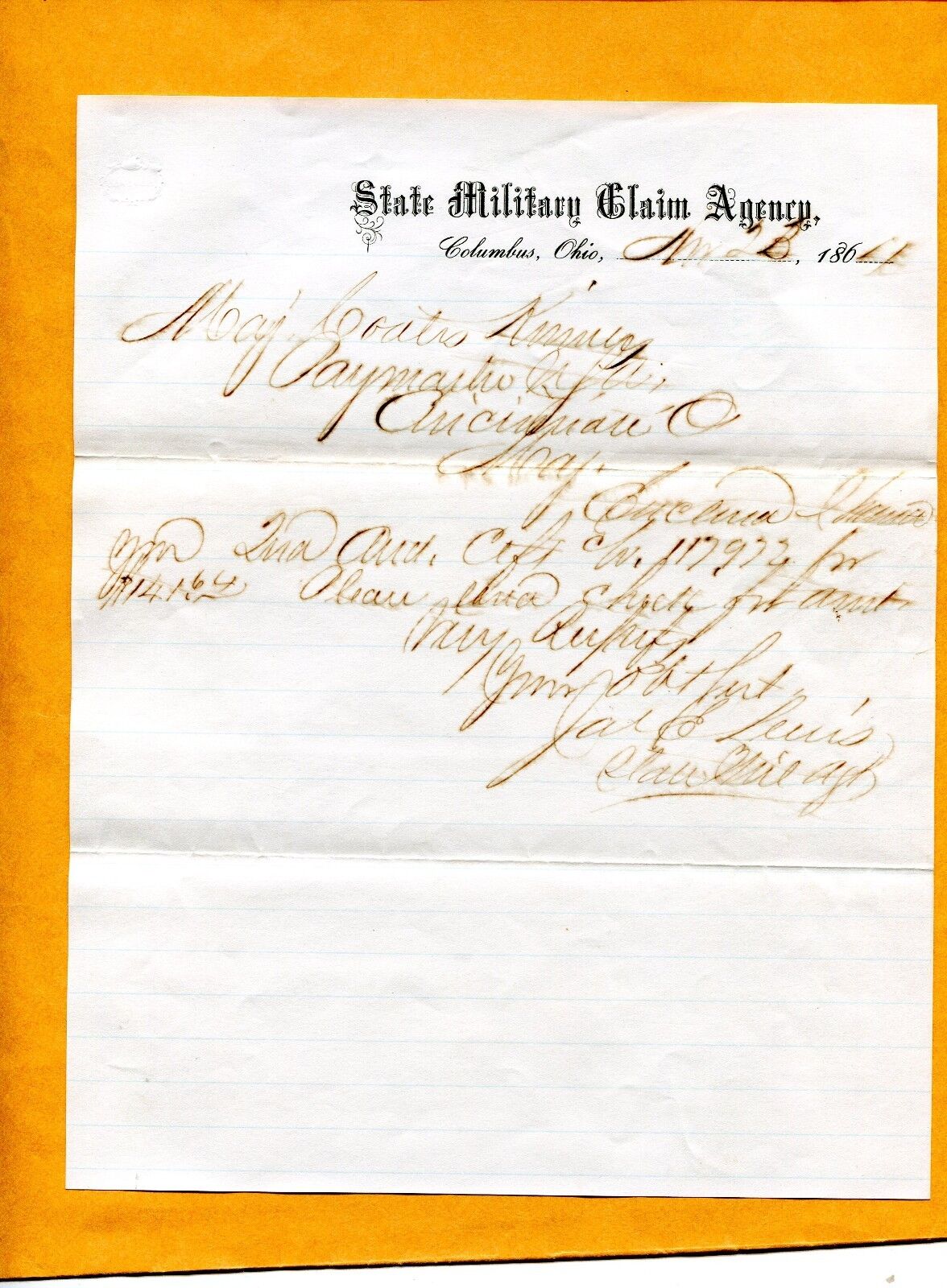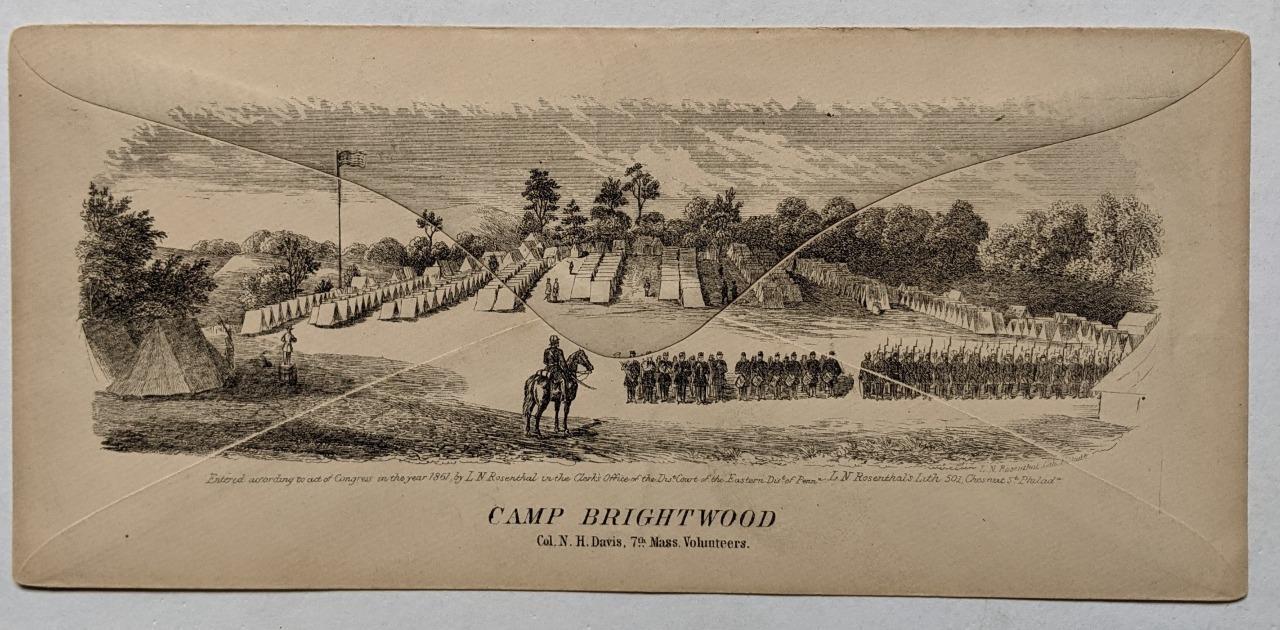-40%
Civil War Letter from Soldier 1864 LOTS OF DETAIL
$ 132
- Description
- Size Guide
Description
A four-page letter dated June 13, 1864 from a Civil War soldier named Charles to his father.The letter is written in pencil. It consists of one sheet of lined paper measuring about 8" x 10", folded in half to create four pages. The document is well-preserved as shown in photos, although the handwriting is faint in places.
Charles must have been a Union soldier because he noted that he could not figure out why Grant wanted his company to move where it did. He described the first dead person he saw -- a rebel soldier who was shot while rising up in his saddle -- and explained what food the soldiers ate and how it was obtained.
This letter was transcribed in the following manner: Using the magnifying feature on my iPhone, I read it aloud word by word to my wife, who typed the text into a Word document. Reading Charles' text out loud was as if someone from the grave, silenced for 158 years, suddenly awoke and started describing to us the rigors of war.
Our transcription follows:
[Page 1]
‘Way down in ole Virginny. June 13th 1864
Dear Father:
The Sixth Corps (?) left Cold Harbor night before last and reached this place this afternoon. I don’t know how to designate the immediate locality, but we are in Charlie, or Charles City, County near the James River and about ten miles below Harrison’s Landing. What Grant’s idea is for making this move is beyond my conception, for just before we left our last position breastworks were built as carefully as if we were preparing for a desperate siege. It seems to be the impression however that we will cross the James and operate on Richmond from the Southside, forming a junction with the Battery to that effect. You ask me whether I cannot remember the main incidents that come under my immediate supervision and commit them to writing. I believe you keep my letters, as you note.
[Page 2]
Well, our marches and countermarches are not of much account, as the papers are full of them, but the little incidents I will be more careful to note in writing home, and then you can preserve the letters as usual. Perhaps in doing this I will repeat somethings that I have written before as I cannot remember very well what was so hastily indited – The first dead man killed in action that I saw in this company was on the first day of the wilderness fight, a rebel shot in the center of the forehead. He appeared as if he had just raised up from behind a stirrup (?) to shoot when the fatal bullet overtook him and knocked him back. This man was lying where our regiment first formed its line of battle on that day, right in our midst. His haversack was filled with corn cake which was passed around and pronounced excellent. Speaking of corn cake reminds me that I fell out of the ranks on the march this morning and took a pretty and (?) “flank”,
[page 3]
in search of “grub”, as our stock of hard tack is nearly exhausted, which is almost always the case on a march, the mess eating twice as much as when in camp. I had a hungry companion and we determined between ourselves not to give up the search until the discovery was made. Accordingly the first houses that crossed the line of our vision was our destination. The inmates proved to be d*****s and we succeeded, after considerable coaxing, in getting the female in charge to make us a big corn cake for which I paid her a quarter; for another twenty five cents I purchased a duck. The corn cakes are divided and devoured, after which proceeding we could travel along much more comfortably. With the duck I made a stew (I am considered an excellent cook) compounded of the aforementioned biped, a few new potatoes about the size of marbles, some onion tops, and half a dozen hardtack which one of my partners in the “stew” begged, or in army parlance grubbed, from some other regiment. This we did after encamping
[page 4]
for the night. For the “staff of life” to eat with it, we had resource in some rye shorts (?) which were found in a farm near by made up in cakes, by mixing with water and salt, and baking in a frying pan over a slow fire. The greatest luxury that we have in the eating time is hard tack soaked in water until they are soft and then fried in plenty of grease. The latter commodity however is very scarce. We seldom get any pork.
More next time – I see by the Gazette that Sam is drafted. Will he be able to pay his commutation money? I am glad to hear that Martha is improving in her music. Tell her to write me a letter to send with your next and let me know what she can do on the melodeon, and who is her teacher. What has mother and Freddy got to say? They stand in the background altogether and leave you to do all the talking in the letters. Now, mother, I want you to open your lips and talk to me every time that father writes and Freddy and Martha, too. Remember me to Mr. Post, and his family, and ask him if he thinks a few of his leisure moments would be employed to advantage in writing a few lines to a worthless soldier. I don’t know that I could write in return immediately, circumstances presenting obstacles, but after the camp inform (?) my trust will not be so much engaged. Good bye till I write again which will be when I can “make the raise” of an envelope and a sheet of paper.
Your affectionate son,
Charles
~~~~~~~~~~~~~~~~~~~~~~~~~~~~~~~~~~~~
Our father was a bibliophile who collected rare books, letters, and ephemera for more than 60 years. For now and into the foreseeable future, we will be listing rare paper items from his estate.
Take a look at all our items for sale. We combine shipping upon request. Please LET US KNOW if you’ve purchased multiple items so we can combine.






